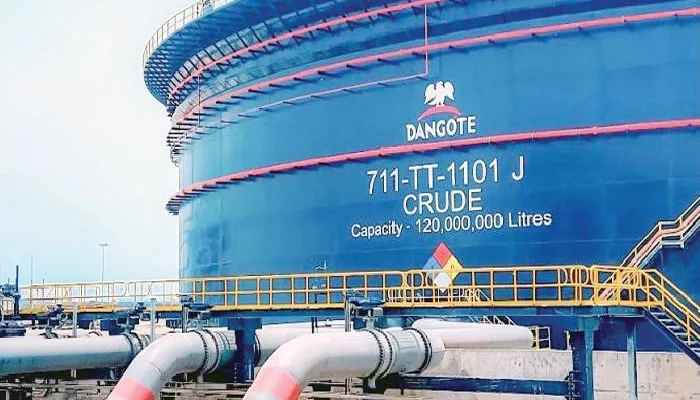In a significant shift for Nigeria’s petroleum industry, the Federal Government has approved a new system that allows petroleum marketers to lift petrol directly from the Dangote Refinery. This change bypasses the Nigerian National Petroleum Company Limited (NNPCL), marking a move towards deregulation of the sector.
The approval was confirmed on Friday by Wale Edun, Minister of Finance and Chairman of the Naira-Crude Sale Implementation Committee. According to Edun, the new system aligns with the government’s strategy to foster competition within the petroleum market.
Join our WhatsApp Channel“The committee has completed a review of the implementation process, and we are pleased with the smooth transition to this new framework,” Edun said during a press briefing. “This model creates a system where local production and distribution of crude oil and refined products are carried out in naira for domestic use.”
Marketers Welcome the New System
Under the new policy, petroleum marketers will now be able to negotiate and purchase Premium Motor Spirit (PMS) directly from local refineries, such as the Dangote Refinery. Previously, marketers had to rely on NNPC as the intermediary in all transactions. This change is expected to allow marketers greater control over pricing and delivery schedules.
“Marketers now have the opportunity to engage directly with refineries, and this can improve efficiency,” said Ibrahim Musa, a petroleum marketer in Lagos. “We believe this will also foster competition, leading to better prices for consumers.”
Marketers have often raised concerns about delays and complications when dealing with the NNPC. The new arrangement offers them more flexibility to handle logistics and pricing without unnecessary bottlenecks.
A Step Towards Deregulation
The government sees this policy as part of its broader move towards deregulating the petroleum sector. By allowing marketers to negotiate directly with refineries, the market is expected to become more competitive, which could ultimately lower prices for end consumers.
READ ALSO: NNPCL Faces Criticism Over Selling Fuel To Marketers At N1,010
“Now that local production is fully underway, we are on track to move towards a deregulated market,” Edun added. “This will be beneficial for everyone, as competition should naturally lead to more favourable market conditions.”
With the Dangote Refinery set to become a key player in the supply chain, marketers are optimistic about the long-term impact of this new system. The refinery, which is one of the largest in Africa, has the capacity to significantly influence the price and availability of petroleum products in Nigeria.
Challenges Ahead for Marketers
Despite the potential benefits, some marketers have expressed concerns about possible pricing hurdles. Since the removal of NNPC’s role as an intermediary, marketers will now need to directly negotiate terms with local refineries, which could lead to pricing conflicts. Some worry that this could initially lead to fluctuations in prices before the market stabilises.
“There are definitely risks involved when you change a system like this,” said Mark Efe, another marketer based in Abuja. “We have to adjust to this new way of doing business, and there might be some initial challenges with pricing. But in the long run, it’s a good move.”
Government Confidence in Market Reforms
The government remains confident that the policy will work out in the long term. In their view, allowing marketers to lift petrol directly from refineries like Dangote will streamline the entire supply process, leading to greater market efficiency.
“This is just the beginning of the journey towards a more competitive petroleum market in Nigeria,” Edun concluded. “It’s a reform that will pay off over time, and Nigerians will benefit from a more stable supply of petroleum products.”
By creating a more open and competitive market, the government hopes that the days of fuel scarcity and inflated prices will soon be behind Nigeria. As marketers begin to lift petrol directly from the Dangote Refinery, all eyes are on how these changes will shape the future of the country’s petroleum sector.
Emmanuel Ochayi is a journalist. He is a graduate of the University of Lagos, School of first choice and the nations pride. Emmanuel is keen on exploring writing angles in different areas, including Business, climate change, politics, Education, and others.
- Emmanuel Ochayihttps://www.primebusiness.africa/author/ochayi/
- Emmanuel Ochayihttps://www.primebusiness.africa/author/ochayi/
- Emmanuel Ochayihttps://www.primebusiness.africa/author/ochayi/
- Emmanuel Ochayihttps://www.primebusiness.africa/author/ochayi/


















Follow Us